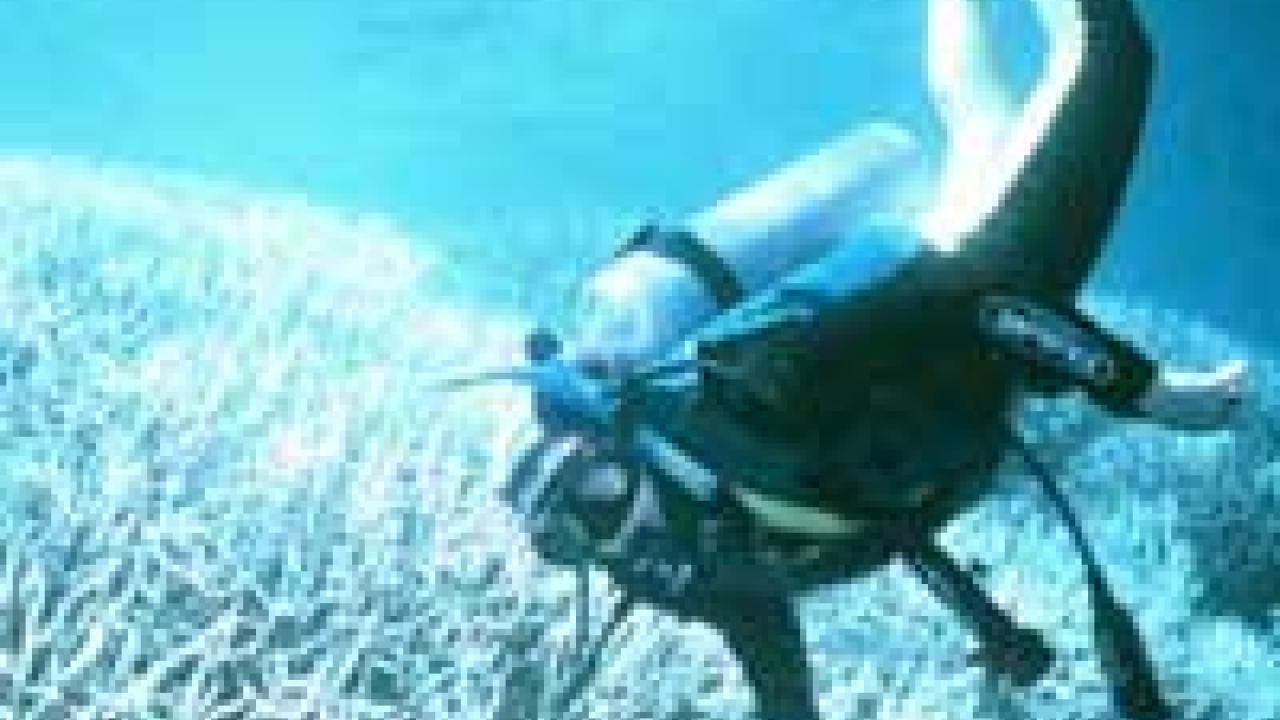Coral reefs, once the prolific producers of seafood stocks and tourism income, are reeling from the effects of overfishing and pollution. Now comes global climate change. In today's cover story of the prestigious journal Science, a UC Davis researcher and other marine experts give a grim prognosis for coral-reef survival and prescribe a rigorous course of therapy.
"In the next 50 years, coral-reef ecosystems will experience environmental changes greater than any they have faced in the past half-million years," said UC Davis evolutionary ecologist Rick Grosberg. "Complicating their existing health problems will be the impacts of climate change, such as warmer water, more frequent and more intense hurricanes, and changes in seawater chemistry."
"Reefs won't disappear entirely but they will change. To keep those changing reefs diverse and resilient, we are calling for vigorous international action to manage reefs better and to reduce the rate of global warming."
As an evolutionary ecologist, Grosberg studies and explains how, over time, the genetic makeup of a population (all the members of one plant or animal species living in a particular location) changes in response to environmental changes. In developing today's journal article, he spent a week on Australia's Great Barrier Reef with other specialists in ecology, geology, paleontology, oceanography, climatology and economics.
The October 2002 forum, named "Managing Coral Reefs in the Face of Global Change" and organized by the Centre for Coral Reef Biodiversity at James Cook University in Townsville, Australia, was the first of its kind. The participants produced a road map for reef rescue called The Townsville Declaration.
Grosberg and his co-authors make three major conclusions:
-- Thirty percent to 50 percent of all coral reefs should be designated as no-fishing zones to preserve the long-term variety and abundance of reef plants and animals.
-- Greenhouse gas emissions must be reduced. Global warming will undoubtedly change the nature of reef ecosystems. Scientists are already recording the effects of warmer conditions, such as widespread coral bleaching. The increase of carbon dioxide in the air is changing ocean chemistry, which may cause reefs' limestone skeleton to fracture or dissolve.
-- Coral reef management must be coordinated across international and local agencies.
Grosberg's individual contributions to the coral reef forum and the Science paper describe how reef makeup may change in response to human-caused environmental stresses.
"My concerns are how habitat destruction, overfishing and pollution are changing the genetic structure of coral reef organisms. Ultimately, the way reef populations respond to global climate change might be very different from how it would be if they were not so small and fragmented," Grosberg said.
Coral reefs are undersea communities of thousands of species of plants and animals, all interdependent. Reef-building coral itself is a delicate and dynamic partnership between a bloblike animal (a polyp) and a plant that lives inside its cells. The reef is a colony of thousands of these polyps and their limestone walls and skeletons.
In healthy reef ecosystems, the plants and animals are genetically diverse -- differences exist among various species, among populations within a species, even among individual organisms within a population. Genetic diversity is what keeps plant and animal species from dying out altogether when their environment changes: Within the species, there are individuals or populations that can survive and reproduce in the new conditions.
Better understanding patterns of diversity within coral species, and how that diversity relates to survival, will help evolutionary ecologists like Grosberg predict how coral reefs will respond to climate change. Some questions are: Exactly how genetically diverse -- how adaptable -- are the corals found around the world? Will already reduced populations lack the genetic diversity needed to adapt to changing water conditions? Will shrinking reef size make it impossible for coral youngsters to travel to a neighboring reef and diversify its gene pool? Will there be fewer coral species in the future, and what would that mean for the health of fisheries?
"For virtually all species of corals and coral reef fishes, we have no idea what the precise genetic heritage is. We don't know how genetically variable they are or how capable they are of responding to environmental change," Grosberg said.
"One thing we can be sure of is that, as we reduce population size and increase the distance between reefs, their ability to respond to change will be diminished."
The Science paper also credits UC Davis scientists Alan Hastings and Louis Botsford for their advances in optimizing the design of marine reserves. It was their models that produced the recommendation of 30- to 50-percent preservation of reefs.
The paper's lead author is the convener of the Townsville forum, coral ecologist Terry Hughes, director of the Centre for Coral Reef Biodiversity.
Media Resources
Rick Grosberg, Center for Population Biology, 530-752-1114, rkgrosberg@ucdavis.edu
Terry Hughes, James Cook University, Australia, 61 (0) 7 4781 42, terry.hughes@jcu.edu.au
